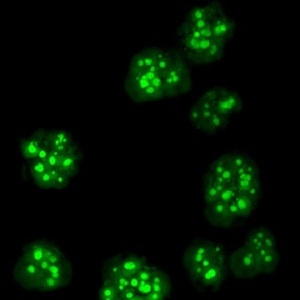New discovery offers potential for algae biofuel production




Donald Danforth Plant Science Center
October 31, 2016
BY Donald Danforth Plant Science Center
James Umen, associate member at Donald Danforth Plant Science Center, and colleagues have discovered a way to make algae better oil producers without sacrificing growth. The findings were published Sept. 6, in a paper titled, “Synergism between inositol polyphosphates and TOR kinase signaling in nutrient sensing, growth control and lipid metabolism in Chlamydomonas,” in The Plant Cell. Umen and his team including lead author Inmaculada Couso and collaborators Bradley Evans, director of Proteomics & Mass Spectrometry, and Doug Allen, USDA Research Scientist at the Danforth Center, identified a mutation in the green alga Chlamydomonas which substantially removes a constraint that is widely observed in micro-algae where the highest yields of oil can only be obtained from starving cultures.
Umen and his team found the oil-accumulating mutation in Chlamydomonas, called vip1-1, while investigating how two conserved signaling systems interact with one another. One system involves a protein called TOR (target of rapamycin) whose activity is tuned to match cell growth rate with nutrient levels in the environment. The other system involves a family of proteins called VIP that produce highly phosphosphorylated small molecules called inositol polyphosphates that are thought to act as intracellular signals, but whose function in algae is not well-defined. The team found that when VIP activity was reduced by the vip1-1 mutation, cell growth became extremely sensitized to changes in TOR activity; but unexpectedly, this sensitivity was dependent on the sources of carbon nutrients that cells had available. When TOR-inhibited vip1-1cells were given light for photosynthesis and supplemented with acetate—a “free” source of extra carbon—their growth was completely arrested. However, the vip1-1 mutation had no impact on TOR-inhibited cell growth when acetate was removed and atmospheric CO2 was the only carbon source.
The connection between acetate and the growth behavior of vip1-1 cells led Umen and his team to investigate the mutant further to see if it had other metabolic alterations that could be detected without perturbing TOR signaling. Remarkably, they found that actively growing vip1 cells were oil overaccumulators that made extra storage oil compared to normal cells, and did so without incurring a significant growth penalty. Moreover, under starvation conditions when normal cells boost their oil content significantly, vip1-1 cells increased it even more with up to double the yields seen in normal cells.
“Our study reveals a new way to understand how cells control carbon metabolism and storage,” said Inmaculada Couso, a post-doctoral researcher at the Institute of Plant Biochemistry and Photosynthesis. “As we decipher the inositol polyphosphate signaling code, we open up the prospect of being able to reprogram metabolism and make algae better producers of oil or other high value carbon-rich compounds."
Advertisement
Advertisement
Advertisement
Advertisement
Related Stories
The U.S. Department of Energy Bioenergy Technologies Office (BETO) announced up to $23 million in funding to support research and development (R&D) of domestic chemicals and fuels from biomass and waste resources.
The U.S. DOE has announced its intent to issue funding to support high-impact research and development (R&D) projects in two priority areas: sustainable propane and renewable chemicals and algal system cultivation and preprocessing.
Sens. Sherrod Brown, D-Ohio, and Pete Ricketts, R-Neb., in August introduced the Renewable Chemicals Act, a bill that aims to create a tax credit to support the production of biobased chemicals.
The Chemical Catalysis for Bioenergy Consortium, a consortium of the U.S. DOE’s Bioenergy Technologies Office, has launched an effort that aims to gather community input on the development of new biomass processing facilities.
USDA on March 8 celebrated the second annual National Biobased Products Day, a celebration to raise public awareness of biobased products, their benefits and their contributions to the U.S. economy and rural communities.
Upcoming Events










